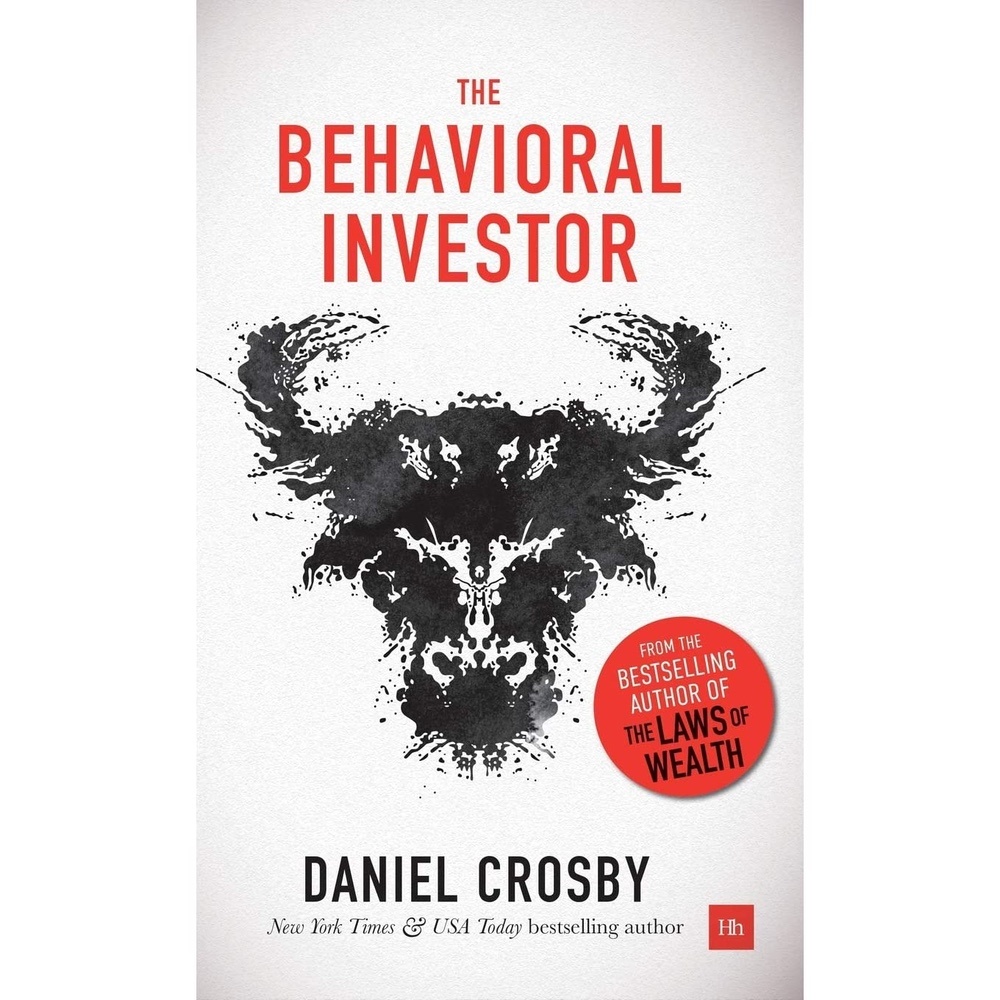Sharing my learnings from the book, The Behavioral Investor by Daniel Crosby
The Behavioral Investor by Daniel Crosby
In The Behavioral Investor, psychologist and asset manager Dr. Daniel Crosby examines the sociological, neurological and psychological factors that influence our investment decisions and sets forth practical solutions for improving both returns and behavior. Readers will be treated to the most comprehensive examination of investor behavior to date and will leave with concrete solutions for refining decision-making processes, increasing self-awareness and constraining the fatal flaws to which most investors are prone.

- if you want to be a successful investor, you have to understand how your brain responds to its environment and how it can influence you in ways you might not even realize until it’s too late
- money is at the heart of every portfolio but far more important than the money people invest are the people who invest that money in the first place, the people are the ones who make the decision to buy, hold & sell
- to be a successful investor , you must understand how your brain works
- the human brain was designed to keep our prehistoric ancestors safe. When your brain thinks you’re threatened, it limits its focus to these areas to keep you alive. It makes it harder for you to think clearly
- our brains also encourage us to be impatient by giving us a bit of dopamine (hormone that makes us feel good whenever we do something that results to immediate success). This may result to us be tempted by short-term wins instead of long-term goals
- your brain’s money-lust will always cloud your judgment but if you’re aware of it, you’ll be better placed to overcome your brain’s impulses & stop yourself from doing the wrong thing
- our behavior relies heavily by our feelings. You’re not as rational as you think.
- when it comes to making decisions, we humans are experts at justifying our choices. If someone challenges our decisions, we become defensive, even if we made a mistake.
- our human need for comfort makes us prefer the familiar to the unfamiliar. And because we have such a strong fear of loss, we hold on to what we already have, even at the expense of potential gain
- to succeed as an investor, you need to get used to being uncomfortable because the markets are constantly in flux, you’ll always face potential losses but if you accept this, you can move forward with the best course of rational action
- overconfidence is a liability. It leads to destructive, ego-driven behavior. When investors experience wins, they believe their success is due to their unique skills and their overconfidence could cause them to keep buying, even if stock prices are already high
- to invest successfully, you must embrace the unfamiliar
- it’s human tendency to value what’s familiar because it takes a lot of energy for your brain to make difficult decisions, it looks for ways to cut corners by defaulting to what it already knows. Sadly, when it comes to investing, this tendency puts your portfolio at risk
- to be a behavioral investor, you have to accept that there will always be upheaval in the financial world. To counter this uncertainty, you should build diverse portfolios to carry you through the natural highs and lows
- to invest successfully, you must broaden your views
- you need to take the long view by examining your portfolio for any stocks at risk of bankruptcy, get rid of them then diversify to avoid catastrophe and finally, place your trust in time
- To invest successfully, you must manage your emotions
- goals-based investing (personal benchmarking) is used by dividing money into 3 buckets – safety, income & growth then invest accordingly, using your emotions to guide you. To counter strong emotions, slow down your thinking through meditation
- to be a successful investor, you must understand how influential your intuition is
- as an investor, you need to accept that conscious thinking isn’t the best decision making tool. To counter this, turn to model-based approaches (e.g., extrapolation algorithms). This makes them invaluable during moments of intense stress or when you’re clouded by fear.
- to be a successful investor, you must manage your fear of market bubbles
- turn to Michele McDonald’s RAIN model when stressed:
- recognizing what is physically happening to you, like an increase in your heart rate
- accept whatever you’ve observed, even if you don’t like it
- investigate any narratives you’re telling yourself about the situation & identify other thoughts you’re having
- non-identification where you acknowledge that feeling stress doesn’t mean you have to be defined by it


Leave a Reply